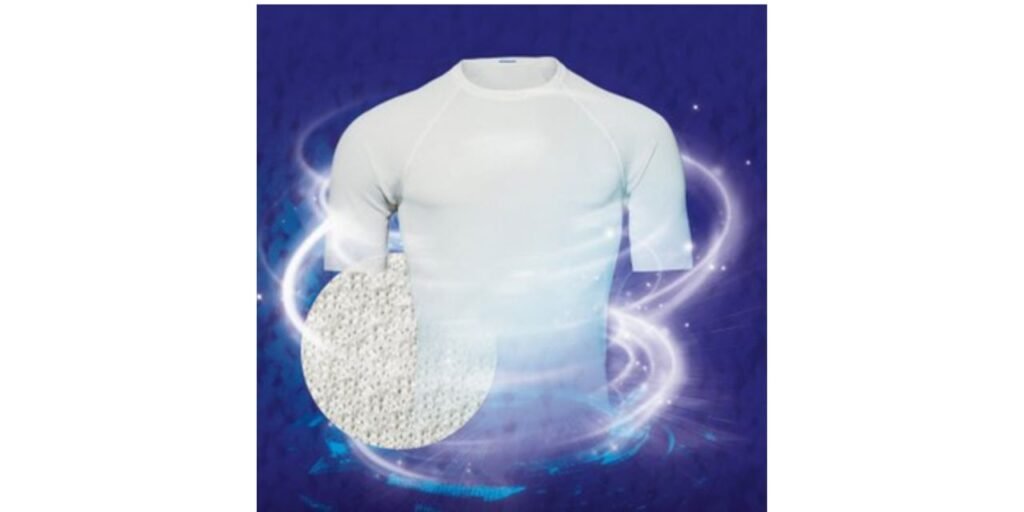
Because Biofront PLA resin is created from plant-derived raw materials, it will help reduce microplastics because of its faster rate of biodegradation and CO2 emissions throughout the product lifespan.
- This is the first time a garment made solely of textile waste—no bottles, packaging, or virgin plastic—has been produced. Fibres that are 100% biorecycled.
- Achieving 100% “fiber-to-fiber” recycling through the development and industrialisation of CARBIOS’ enzymatic depolymerisation technology, the collaboration promotes the textile industry’s transition to a circular economy.
Clermont-Ferrand, France (06.45am CET). CARBIOS, (Euronext Growth Paris : ALCRB), a pioneer in the development and industrialization of biological technologies to reinvent the life cycle of plastic and textiles, and its “fiber-to-fiber” consortium partners On, Patagonia, PUMA, Salomon, and PVH Corp. Calvin Klein’s parent firm uses CARBIOS’ innovative biorecycling technology to create the first polyester garment in history to be enzymatically recovered from 100% textile waste. Given that just 1% of fibres are recycled into new fibres and that PET bottles are now used to make the bulk of recycled polyester, this technical achievement advances textile circularity. The group’s accomplishment represents a significant step towards the textile industry’s transition to a circular economy and a significant milestone towards the consortium’s eventual goal of proving fiber-to-fiber closed loop employing CARBIOS’ biorecycling method on an industrial scale.
Not your typical t-shirt
A plain, white T-shirt was a deliberate choice to showcase the technological achievement that made its production possible from mixed and colored textile waste. Through the use of enzymes, CARBIOS’ biorecycling technology breaks down polyester into its basic building elements, which are then reformed to create biorecycled polyester with a quality comparable to virgin polyester derived from oil. With the added benefit of a smaller carbon footprint and the avoidance of landfill or incineration, textile waste may now be used as a raw material to make polyester textiles, which will then be used as raw materials once again to drive a circular economy.
Not your typical trip…
The t-shirt’s production began with all consortium members (On, Patagonia, PUMA, PVH Corp. and Salomon) supplying rolls and production cutting scraps to CARBIOS in Clermont-Ferrand, France.This textile waste included a few mixed blends of cotton or elastane, together with different colours and treatments (such long-lasting water repellant) that make them difficult to recycle using traditional techniques. The collected trash was broken down into its original monomers, PTA1 and MEG2, in the pilot plant of CARBIOS using their biorecycling technology. External partners subsequently repolymerized, spun, and sewn the resultant monomers into new fabric, showcasing the smooth incorporation into current production procedures.The sports t-shirt that is produced from 100% textile waste satisfies the sustainability goals and quality requirements of the clothing businesses that are part of the “fiber-to-fiber” consortium.
CARBIOS’ demonstration plant in Clermont-Ferrand, France, has been up and running since 2021, and its first commercial plant, the world’s first industrial-scale enzymatic PET recycling plant, is currently under construction in Longlaville, France. Furthermore, CARBIOS recently revealed a number of letters of intent with PET manufacturers in Asia and Europe, demonstrating interest in its biorecycling technology worldwide and promoting the global adoption of its licensing model.
The CEO of CARBIOS, Emmanuel Ladent, stated: “Although it may appear to be a typical t-shirt, the technology that powers it is quite remarkable! “Fiber-to-fiber” recycling is a technical achievement. Together, we have surmounted several technological challenges to create the world’s first enzymatically recycled t-shirt composed completely of biorecycled fibres, something that CARBIOS could not have accomplished on our own.
Director of Sustainability Begüm Kürkçü, On: “We have committed time and resources to studying fiber-to-fiber recycling because we believe it is an important step in moving our business towards circularity.An major milestone was reaching the proof-of-concept and producing the first T-shirt entirely composed of biorecycled fibres. Our collaboration with CARBIOS and the other consortium members is a critical step in empowering the sector to use transformative circular technologies on a large scale.
PUMA Chief Sourcing Officer Anne-Laure Descours stated: “PUMA wants all of its polyester to come from textile waste. The news made today marks a significant step in accomplishing this goal and transforming our sector into one that is more circular. In order to maximise the impact of this technology, we must now collaborate to ensure that it can be scaled up. Being a part of this innovation and establishing new benchmarks for fiber-to-fiber recycling excites us.
“This T-shirt is the first tangible outcome of our ‘fibre to fibre’ consortium with CARBIOS, overcoming textile challenges to create a garment from enzymatically recycled waste with the same quality as virgin fibres,” said Guillaume Meyzenq, Chief Product Officer Softgoods, Salomon. Along with highlighting our commitment to decreasing industrial waste and our engagement to lower our carbon footprint by 30% by 2030, it expands on Salomon’s commitment to material circularity, which began with Index, the first running shoe that could be recycled. Our common leadership and goal for a more sustainable footwear and textile sector are reflected in this initiative, which we are working on with partners from footwear and apparel brands.
